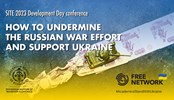New research reveals foreign aid's positive impact on female empowerment in Malawi
Maria Perrotta Berlin, Evelina Bonnier, and Anders Olofsgård ‘s research sheds light on the community-level effects of foreign aid projects on women's empowerment, with a focus on Malawi—the country boasting the most comprehensive recent record of geo-coded aid project placement.
The researchers' findings, derived from a meticulous analysis of diverse aid projects and contributions from various donors, highlight the nuanced impact of foreign aid on women's lives. Notably, the study indicates an overall positive effect of aid on women's empowerment, particularly in terms of a comprehensive index measuring female agency and women's sexual and fertility preferences.
One significant discovery is the amplification of positive outcomes when aid is specifically targeted towards gender-related initiatives. Gender-focused aid not only improves outcomes in the areas of women's sexual and fertility preferences but also tentatively causes reductions in gender-based violence, a critical concern in many societies.
However, the study takes a cautionary turn as it unveils a crucial contextual factor—patrilineal communities. In these settings, the positive impact of gender-targeted aid seems to dissipate, and gender-targeted aid even has a negative impact on men's attitudes towards female agency in matters of sexuality and fertility.
This leads to a pivotal recommendation arising from the research—that foreign aid initiatives must be tailored to the specific community context. The authors argue that donors should carefully consider the socio-cultural nuances of the targeted area when designing and placing aid projects. This community-level understanding is crucial for ensuring that aid not only benefits women but also avoids inadvertently reinforcing harmful gender norms.
The findings underscore the complexity of the relationship between foreign aid and female empowerment, urging policymakers and donors to adopt a more nuanced and context-specific approach in their efforts to uplift women in developing nations. As the paper prepares for publication, it promises to stimulate further discussion and shape the future landscape of foreign aid strategies aimed at fostering gender equality.




